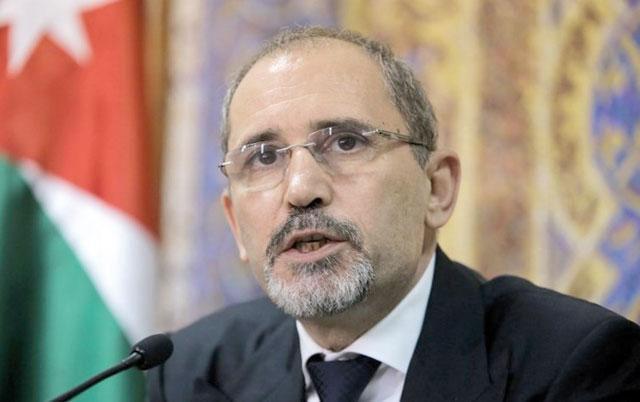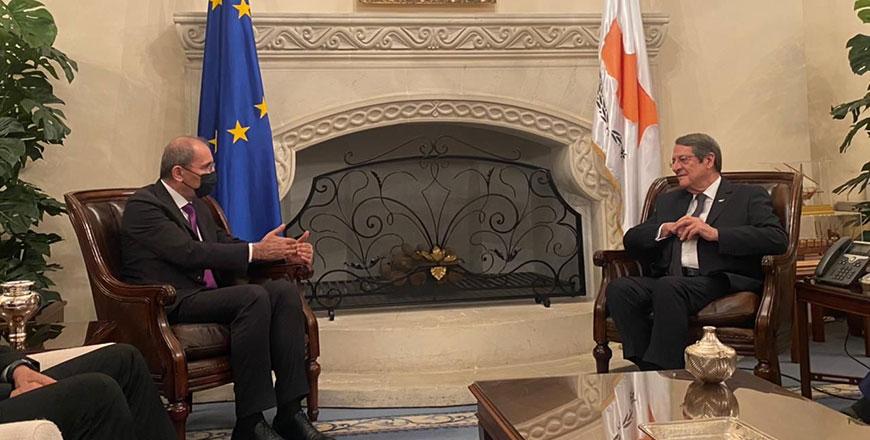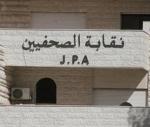You are here
Biden’s visit to region ‘an opportunity for open, frank dialogue’ to resolve regional crises — FM
By JT - Jul 15,2022 - Last updated at Jul 15,2022

Ayman Safadi
AMMAN — In an interview with Asharq News, Deputy Prime Minister and Foreign Minister Ayman Safadi on Thursday described the US as a key partner to Jordan and Arab countries.
Safadi noted that US President Joe Biden’s visit to the region constitutes “an opportunity for an open and frank dialogue” to resolve regional crises and achieve regional security and stability.
Safadi described the upcoming Gulf Cooperation Council (GCC) +3 Summit as a “meeting between friends, between partners”, highlighting that the aim of it is to bolster security, stability and prosperity in the region.
The foreign minister stressed that Jordan’s interests lie in stabilising the region and dealing with mounting challenges pertaining to existing political crises or newly emerging crises, foremost of which is food security.
Asked about Arab coordination, Safadi expressed aspiration for the summit to be a space to discuss mechanisms of serving common, complementary interests and cementing cooperation.
Turning to the Palestinian issue, Safadi stressed its centrality to Jordan and Arab countries, adding that a major breakthrough paving way for the return of negotiations is not expected now, as Israel is currently running through a transitional phase.
The US has adopted advanced stances which emphasise the two-state solution, reject unilateral measures that undermine the solution, and advocate the need to respect the historical and legal status quo in Jerusalem and its holy sites, and acknowledges the importance of the Hashemite Custodianship in this regard, he said.
Safadi underlined the need for a collective action aimed at achieving a just and comprehensive peace, which constitutes an Arab strategy that all Arab countries have emphasised since the launch of the Arab Peace Initiative in 2002.
Safadi called for de-escalating the situation, stopping unilateral measures that undermine the two-state solution and chances of achieving peace, and collectively establishing a mechanism that pushes towards “a political horizon” to return to serious and effective negotiations to resolve the Palestinian issue on the basis of the two-state solution.
On Jordanian-US relations, Safadi described them as “historical and strategic”, highlighting His Majesty King Abdullah and President Biden’s meetings.
In response to a question about Jordan's relations with the US during Biden’s presidency and its impact on regional issues, Safadi reaffirmed that the US is a key partner which possesses an important role in all efforts aimed at resolving regional crises.
Bilaterally, there is great cooperation with the US, who is the largest supporter of the Kingdom, Safadi said, adding that this support is essential, not only to achieve economic development, but also to address the repercussions of regional crises.
Jordan's dialogue with the US is one held between “partners and friends” that builds on agreements concluded during the meetings of His Majesty King Abdullah and President Biden.
Focusing on relations with Iran, Safadi expressed Jordan and all Arab countries’ keenness to enjoy healthy relations with Iran based on mutual respect, non-interference, and good neighbourliness.
Emphasising that dialogue is the best means to address existing tensions, Safadi noted that the region has already undergone enough crises and does not need additional tension.
He added that the real causes of tension must be remedied in order to reach the healthy relations that are sought with Iran.
In regard to the situation in Syria, Safadi referred to the systematic drug smuggling operations on the Jordanian borders shared with the Syrian side.
Safadi highlighted the need to maintain security and stability in southern Syria, adding that Jordan is exerting efforts to protect its interests and borders through its armed forces.
The stability of southern Syria is a Jordanian national interest, he stated, noting that Jordan is attempting to deal with the causes of instability in the south.
In response to a question about an “Arab Middle Eastern NATO”, Safadi clarified that His Majesty was asked about the possibility of emulating NATO as a model for cooperation, not creating an extension of the organisation.
Historically, Jordan has always called for creating a joint Arab action to face common challenges, he said.
In this regard, Safadi referred to a joint defence treaty ratified by Arab countries dating back to 1950, adding that it remains inactive.
“Every proposal that endorses joint Arab institutional action is a proposal supported by Jordan, and it is a proposal the region is in need of," he said.
Safadi denied the Kingdom’s receiving a proposal suggesting the establishment of a Middle Eastern version of NATO, but Arab countries acknowledge the need to strengthen Arab cooperation and Arab and institutional action capable of serving interests and achieving the best for Arab people.
In addition to defence and security cooperation and coordination, Arab countries need to unanimously confront challenges pertaining to the economy, food and security as well as unemployment, he said.
As for tripartite cooperation projects with Iraq and Egypt, Safadi said that Jordan enjoys good relations with all Arab countries, noting that all Arab countries seek broadening areas for cooperation.
The meetings held by His Majesty with a number of Arab leaders revolve around finding effective mechanisms to serve common issues and interests, he said, adding that tripartite cooperation between Jordan, Egypt and Iraq aims at fostering integration between the three countries.
Within the framework of tripartite cooperation, a number of projects were set up, foremost of which is establishing an industrial zone as well as free zone located at the borders, creating an electrical grid connection, and constructing an oil pipeline extending from Basra to Aqaba and then to Egypt.
Safadi referred to the existing grid connection with Saudi Arabia, highlighting the cooperation with the UAE, Qatar, Bahrain and Kuwait.
Asked to elaborate further on relations with Saudi Arabia, Safadi said that the two kingdoms are bound by historical and strategic relations, adding that they both possess a common awareness of the need to work together, and with the rest of the Arab countries.
He described Saudi Crown Prince Mohammed Bin Salman Bin Abdulaziz Al Saud’s last visit to Jordan as successful, as it confirmed the two countries' keenness to work hand in hand and build on historical relations.
Speaking about the Russian-Ukrainian war, Safadi said that the “catastrophic repercussions” of the war will be reflected on the entire world, not only on Jordan, highlighting the war’s negative impact on energy prices, supply chains, food security and others.
Summarising Jordan's stance towards the war, Safadi said that the crisis must be resolved, calling for international measures to mitigate the negative consequences of the war.
Food security and energy prices are both fundamental issues, he said, especially for the Kingdom, he said, therefore, Jordan’s position will remain supportive of all efforts aimed at reaching a solution to this crisis, in accordance with international law and the UN Charter, respecting states’ sovereignty and territorial integrity.
Jordan has always called for and worked for peace, constantly trying to contribute to resolving crises or alleviating their consequences.
On whether the Yemen and Syria files will be discussed at the summit, the foreign minister said that the leaders will speak as they see fit, noting that these are existing crises in the region that must be resolved.
In regard to the Yemeni crisis, Jordan welcomed the armistice reached in Yemen and supports efforts to end the crisis in accordance with the approved references, until stability in Yemen is restored, in a way that guarantees maintaining security and stability in the Arab Gulf.
Safadi highlighted the Syrian crisis as “a catastrophe” that must end, adding that Jordan’s unwavering stance encouraged reaching a political solution to this crisis in accordance with UN Security Council Resolution 2254 in a manner that protects Syria's unity, rids it of terrorism, preserves its sovereignty, and creates conditions that enable the voluntary return of Syrian refugees.
Safadi urged the international community to continue to support the 1.3 million Syrian refugees in Jordan, as hosting the refugees cannot be solely borne by host countries.
Related Articles
AMMAN — Deputy Prime Minister and Foreign Minister Ayman Safadi focused on the Palestinian issue during the 159th ministerial session of the
AMMAN — Deputy Prime Minister and Foreign Minister Ayman Safadi on Thursday conveyed a message from His Majesty King Abdullah to Cypru
AMMAN — Jordan and Russia on Monday stressed the need to continue working on enhancing cooperation, consultation and coordination regarding














